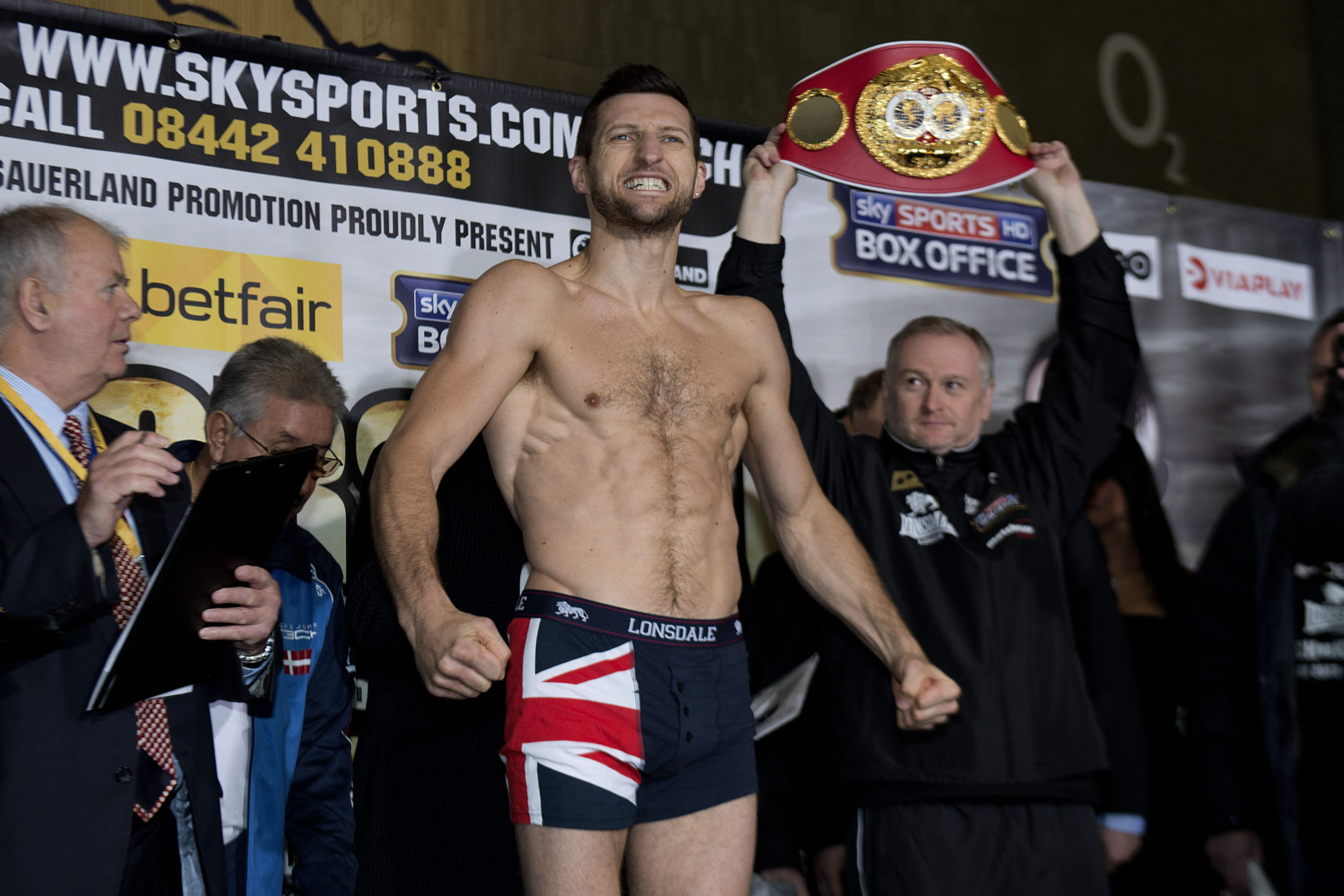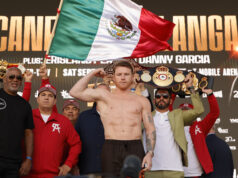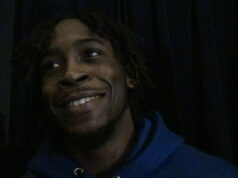By Bart Barry–

Saturday at London’s Wembley Stadium British super middleweight titlist Carl “The Cobra” Froch stood before 80,000 of his countrymen, and across from a particularly obstinate one named George Groves, and told them to set aside the ample achievements of a career he casually calls “unbelievable” and judge his legacy on one criterion: How he acquitted himself in what 36 minutes followed. And then in the final 20 seconds of round 9, roughly 27 minutes into a pitched rematch, Froch struck Groves with a right cross so pure that in a flash it made Froch the historic sports figure he desperately wishes to be.
Whatever aficionados opined of him Saturday morning or opine of him today, Carl Froch knows what he is about. That attribute distinguishes him much as another. It is what allowed him to take his talent to a place his athleticism did not anticipate, an athleticism that suffered no loneliness, there: Who seeing Froch for the first time across from Andre Dirrell, in their memorably awful 2009 fight, anticipated the run Froch concluded Saturday?
Froch has been for the most part unabashed about conceding his use of a sports psychologist, which is likely not his first psychologist nor his last, and that sort of disinterested observation, reportage and maintenance from another can be quite a boon for an athlete who seeks an advantage of any kind over an athletically superior opponent – especially since many if not most of the men Froch has vanquished since 2008 have been, on paper, or in a gym, or on a track, or anywhere other than a prizefighting ring, superior to him. If Froch’s self-belief is by definition absurd it is nevertheless held deeply enough to be unreachable by any punch or word.
When Froch’s identity, not his shtick but his identity, is challenged – and unlike many an American athlete, Froch is exact in his separation of identity and shtick, knowing where they overlap and where one is devoid of the other, as evidenced by his self-deprecation about using the autobiographical title “international superstar” before his November match with Groves, a touch of self-awareness Floyd Mayweather couldn’t find on Freud’s couch itself – Froch looks upon his inquisitor not with contempt so much as incredulity: If you told Carl Froch his comportment is not the finest example of such in contemporary prizefighting, he’d not give you a look reserved for the enemy so much as a three-headed extraterrestrial.
Because Froch knows what he is about he can be vulnerable in moments that strike unpredictably as his jab, he can kneel before Rachael Cordingley, the model and mother of his children, minutes after the greatest moment in his storied career and sheepishly ask her hand in marriage, and then, sitting mashed on the apron against a man he put in an oxygen mask not a half-hour before, confess even more sheepishly he’d gone and asked his “sneaky question” and that she’d said yes. That vulnerability is what makes his courage and confidence and arrogance still more fascinating, especially when presented to American ears not accustomed to the mother tongue spoken well by athletes.
That fascination came through in Paulie Malignaggi’s voice, Saturday. The man voted by the Boxing Writers Association of America 2013’s best broadcast journalist was part of a three-man Sky Sport’s telecast that offered more insight between rounds than HBO’s four-man crew offered in the month of April, and he was not timid in his praise of Froch, saying Froch had done something exceptional – an observation no doubt aided by Malignaggi’s presence in Wembley Stadium, where, coincidentally, the biggest prizefight of 2014 happened approximately a continent and an ocean away from HBO’s nearest production truck. Malignaggi is a real dude, oftentimes too real, a man whose struggles for an unshakeable identity have happened publicly – who does not remember what befell his coiffure when last Malignaggi graced a British boxing ring? – but a man whose self-belief, too, is more settled than most, and a man who captured with his words and voice what every man who watched Saturday felt: Right now, I wish I was Carl Froch.
It strains one’s imagination to think the man who fought Albert Rybacki in 2008 would be fighting before 80,000 of his countrymen six years later, and it is exactly impossible to imagine that same man in that same situation would land the punch Froch did to take his rematch with Groves, instantly, from competitive scrap to sympathetic spectacle. Who that saw Groves reduced from a man to an accordion in round 9 by Froch’s perfectly leveraged right cross did not for a second or two feel remorse for the cruelty that felled Groves, the unrelenting self-promoter?
It was not Froch’s 3-2 combo, left hook-right cross, that ended Britain’s largest post-war prizefight so perfectly, or at least not just Froch’s combo. No, it was the feint that did it, too, the threatened malice, fortified by what 3-2 combos Froch landed imprecisely in rounds 5 and 6 and 8, that froze all but Groves’ rear guard, allowing Froch to step deeply into Groves’ space and connect flush with the hardest righthand thrown by a Brit since heavyweight Lennox Lewis nearly decapitated Hasim Rahman with the same combination in 2001.
Froch should retire on that perfect punch, and he acknowledged such on Sky Sports’ telecast, conceding nothing he does for the rest of his life will surpass what he did Saturday, but he’s a fighter, all fighter, and that means his retirement timing is necessarily poor as his courage is long, and he’ll come to the late-arriving artificiality of a Las Vegas prizefighting crowd sometime before he’s done and “see my name in lights” – whatever exactly he means by that. If his options comprise a beating of Mexican Julio Cesar Chavez Jr., a rematch with American Andre Ward, or a tilt with unproven Kazakhstani middleweight Gennady Golovkin, Froch ought choose Chavez – allowing Ward the ongoing joy of semiretirement and telling Golovkin first to prove himself at least George Groves’ equal.
It matters little, ultimately, as this truism will persist: If every prizefighter were like Carl Froch, ours would be the world’s most popular sport.
Bart Barry can be reached at bart.barrys.email (at) gmail.com










